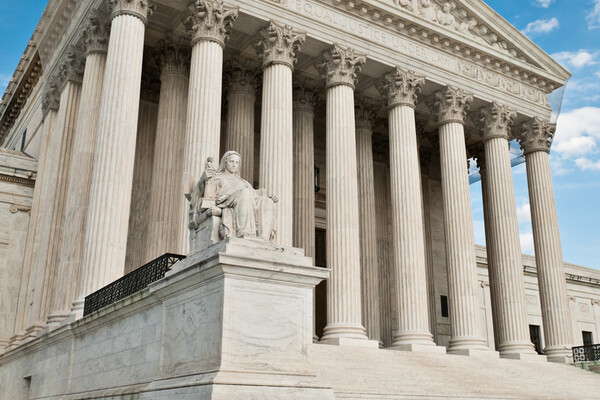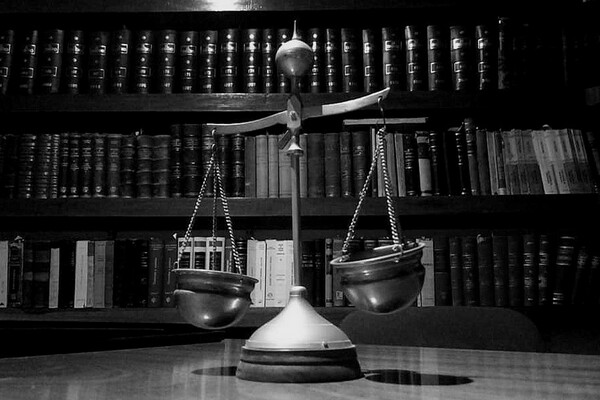11/15
Law
Entrepreneurship Legal Clinic engage local businesses
ELC students gain hands-on legal practice while supporting organic economic growth in local neighborhoods.
Claire Finkelstein discusses Ukraine, NATO, and U.S. ethics and cybersecurity
The Algernon Biddle Professor of Law and Professor of Philosophy runs down the reality of Russia’s invasion of Ukraine, and asks what ethical and legal responsibility NATO has, and what risks could NATO incur, from intervention.
Penn Law reacts to the nomination of Judge Ketanji Brown Jackson
President Joe Biden has selected the Honorable Ketanji Brown Jackson of the U.S. Court of Appeals for the District of Columbia Circuit as his nominee to the Supreme Court.
Former Justice Breyer law clerks share perspectives on his retirement
Statements from Ted Ruger, University of Pennsylvania Carey Law School Dean and Bernard G. Segal Professor of Law, and Jacques deLisle, Stephen A. Cozen Professor of Law & Professor of Political Science.
Law experts unpack SCOTUS decision that blocks OSHA vaccine mandate
On the SCOTUS decisions that block Biden’s OSHA vaccine mandate but allow the rule for health care workers, Penn Law professor Allison Hoffman and Eric Feldman weigh in on what its impact will be.
How to close the Guantánamo Bay detention facility
On the 20th anniversary of the arrival of detainees at the U.S. prison, Penn’s Center for Ethics and the Rule of Law releases 13 recommendations on how to shutter the facility.
Prosecutorial misconduct and the criminal justice system, examined
The Quattrone Center’s review of prosecutorial misconduct claims finds a lack of transparency and accountability throughout the Pennsylvania criminal justice system.
Anita Allen to receive the Philip L. Quinn Prize, the American Philosophical Association's highest honor
Allen served as President of the APA’s Eastern Division in 2018-19—the organization’s first black woman president.
Perry World House explores the end of asylum
In a Perry World House talk, political scientist Michael Jones-Correa of the School of Arts & Sciences discussed the end of asylum, “one of the most pressing issues of our time,” he said.
Spike in child marriages may be ‘the most disturbing fallout of the Taliban takeover’
Rangita De Silva de Alwis explains why there has been an increase in marriages of underage girls in Afghanistan and what could be done to improve girls’ lives.
In the News
Silk Road creator Ross Ulbricht is waiting for Trump to keep his word—and set him free
Leeza Garber of the Wharton School says that legal questions can’t be neatly isolated from ethical and political ones.
FULL STORY →
Courts restrained Trump in first term. Will they ‘check’ his power again?
Kate Shaw of Penn Carey Law says that the current Supreme Court is less likely to act as a check on presidential power than the Supreme Court of a few years ago.
FULL STORY →
What a Trump presidency might mean for Mayor Adams’s criminal case
Claire Finkelstein of Penn Carey Law comments on the incoming presidential administration and the legal woes of the New York City mayor.
FULL STORY →
Elon Musk wins big by betting on Trump
Cary Coglianese of Penn Carey Law says that Elon Musk might view himself as capable of “turning around the federal government.”
FULL STORY →
What a reelected Trump can and can’t do to sway the Fed
Peter Conti-Brown of the Wharton School says that whether a president can remove the Federal Reserve chair is ambiguous because the law doesn’t explicitly provide “for cause” protection for the role.
FULL STORY →
Election Day 2024: Can people see who I vote for?
Michael Morse of Penn Carey Law says that ballots are anonymous and won’t be connected back to a name when tabulated.
FULL STORY →













